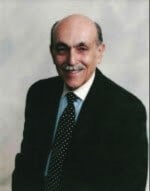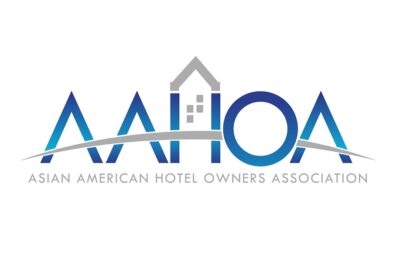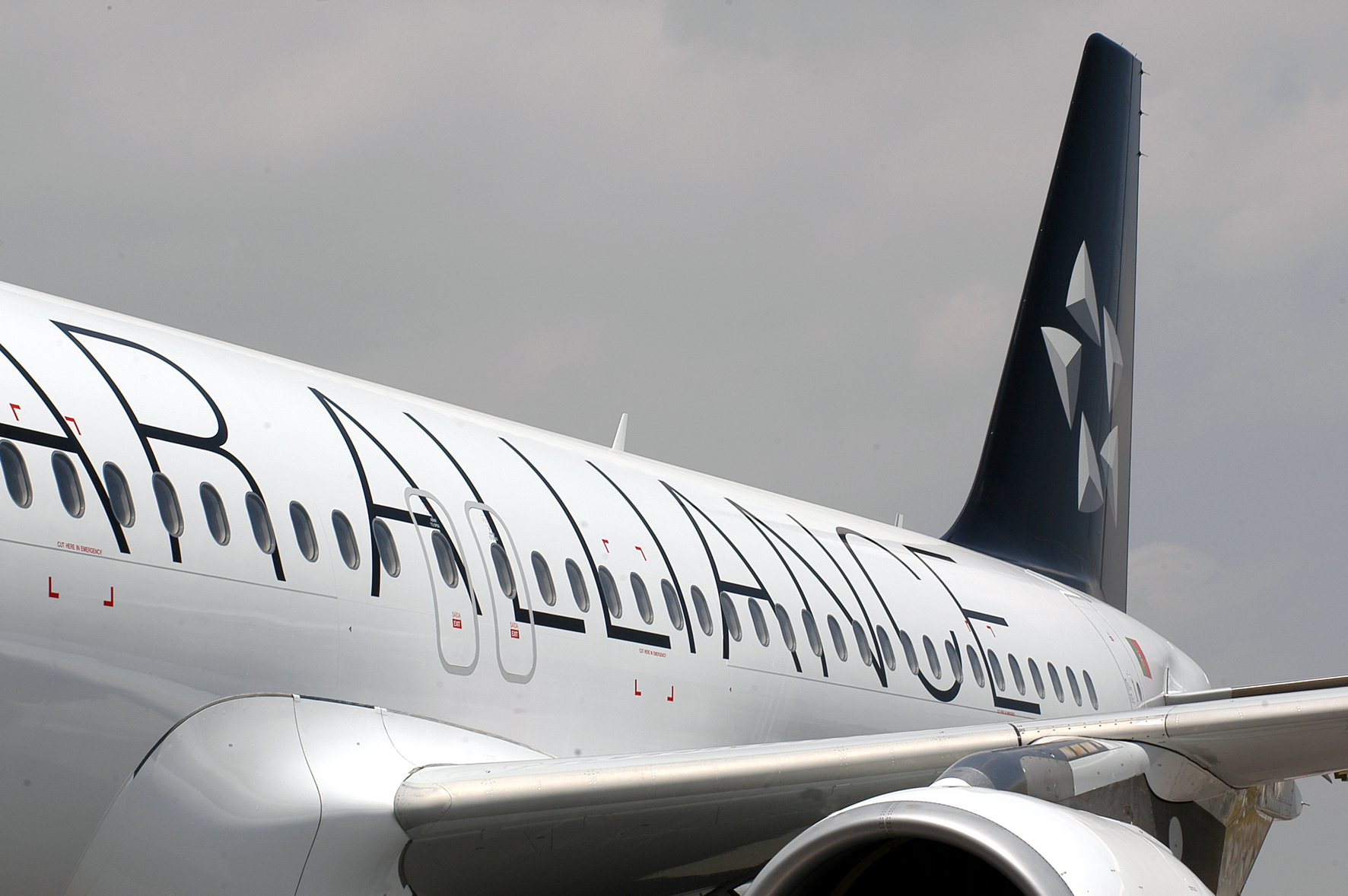هن ايشيائي آمريڪي هوٽل مالڪن جي ايسوسيئيشن (AAHOA) is a trade association that represents hotel owners. As of 2022, AAHOA has approximately 20,000 members who own 60% of the hotels in the United States and are responsible for 1.7% of the nation’s GDP. More than one million employees work at AAHOA member-owned hotels, earning $47 billion annually and provide 4.2 million U.S. jobs across all sectors of the hospitality industry.
Indian Americans in the hotel and motel industry early on faced discrimination, both from the insurance industry and from competitors placing “American owned” signs outside their properties to take business from them. Another group of Indian hoteliers was created in Atlanta in 1989 to address discrimination issues and increase awareness of Asian Americans working in the hospitality industry under the name Asian American Hotel Owners Association.
The Asian American Hotel Owners Association was originally founded to fight racism.
As early as the mid-1970s, Indian Americans hoteliers faced discrimination from banks and insurance carriers. Around that time, after delegates to a regional fire marshal’s convention reported that Patels had set fire to their motels and submitted phony claims, insurance brokers refused to sell insurance to Indian owners.
To fight this problem and other forms of discrimination, the Mid-South Indemnity Association was formed in Tennessee. It grew nationwide and eventually changed its name to the INDO American Hospitality Association. Another group of Indian hoteliers came together in Atlanta in 1989 also to address discrimination issues and to increase awareness of Asian Americans in the hospitality industry. With the help of Michael Leven, then president of Days Inn of America, they formed the Asian American Hotel Owners Association. By the end of 1994, these two groups merged with the following mission:
AAHOA provides an active forum in which Asian American hotel owners through an exchange of ideas with a unified voice, can communicate, interact, and secure their proper position within the hospitality industry, and be a source of inspiration by promoting professionalism and excellence through education and community involvement.
The new owners brought their business expertise and their families to operate these motels. They instituted modern accounting techniques to monitor the all-important cash flow. Four times cash flow became the mantra of the Patels. If the distressed motel produced $10,000 per year in revenues and could be acquired for $40,000, it was profitable to a hard-working family.
They renovated and upgraded rundown motels to improve cash flow, sold the properties and traded up to better motels. This was not without difficulties. Conventional insurance companies wouldn’t provide coverage because they believed these immigrant owners would burn down their motels. In those days banks were unlikely to provide mortgages either. The Patels had to finance each other and self insure their properties.
هڪ جولاءِ 4، 1999 ۾، دوران New York Times article, reporter Tunku Vardarajan wrote, “The first owners, in a manner consistent with many an emergent immigrant group, scrimped, went without, darned old socks and never took a holiday. They did this not merely to save money but also because thrift is part of a larger moral framework, one that regards all nonessential expenditure as wasteful and unattractive. It’s an attitude buttressed by a puritanical aversion to frills and frivolities, one that has its roots as much in the kind of Hinduism that the Patels practice as in their historical tradition as commercial perfectionists.”
ليکڪ جويل ملمن لکي ٿو ٻيا آمريڪن Viking, 1997, New York:
Patels took a sleepy, mature industry and turned it upside down- offering consumers more choices while making the properties themselves more profitable. Motels that attracted billions in immigrant savings turned into real estate equity worth many billions more. That equity, managed by a new generation, is being leveraged into new businesses. Some are related to lodging (manufacturing motel supplies); some related to real estate (reclaiming derelict housing); some simply cash seeking an opportunity. The Patel-motel model is an example, like New York’s West Indian jitneys, of the way immigrant initiative expands the pie. And there is another lesson: as the economy shifts from manufacturing to services, the Patel-motel phenomenon demonstrates how franchising can turn an outsider into a mainstream player. The Gujarati model for motels might be copied by Latinos in landscaping, West Indians in homecare or Asians in clerical services. By operating a turnkey franchise as a family business, immigrants will help an endless stream of service providers grow.
جيئن ته سيڙپڪاري ۽ ملڪيت کي وڌايو ويو، پٽيلن تي مختلف قسم جي ڏوهن جو الزام لڳايو ويو: آتش بازي، لانڊرنگ چوري سفري چيڪ، اميگريشن قانونن کي ٽوڙڻ. xenophobia جي اڻ وڻندڙ ڦوٽ ۾، بار بار اڏامندڙ magazine (Summer 1981) declared, “Foreign investment has come to the motel industry…causing grave problems for American buyers and brokers. Those Americans in turn are grumbling about unfair, perhaps illegal business practices: there is even talk of conspiracy.” The magazine complained that the Patels had artificially boosted motel prices to induce a buying frenzy. The article concluded with an unmistakable racist remark, “Comments are passed about motels smelling like curry and dark hints about immigrants who hire Caucasians to work the front desk.” The article concluded, “The facts are that immigrants are playing hardball in the motel industry and maybe not strictly by the rule book.” The worst visible manifestation of such racism was a rash of “American Owned” banners displayed in certain hotels across the country. This hateful display was repeated in post- Sept 11 America.
In my article, “How American-Owned Can You Get”, (مهمان نوازي, August 2002), I wrote:
"پوسٽ سيپٽمبر ۾. 11 آمريڪا، حب الوطني جا نشان هر هنڌ آهن: جهنڊا، نعرا، گڊ بيس آمريڪا ۽ يونائيٽيڊ وي اسٽينڊ پوسٽر. بدقسمتيءَ سان، اِهو اوسر ڪڏهن ڪڏهن جمهوريت ۽ مهذب رويي جي حدن کي پار ڪري ٿو. آخرڪار، سچي حب الوطني اسان جي بنيادي دستاويزن جي بهترين خوبين تي مشتمل آهي، ۽ آمريڪا جي تمام بهترين خوبي ان جي تنوع ۾ ظاهر ٿئي ٿي. برعڪس، بدترين جيڪڏهن ظاهر ٿئي ٿي جڏهن ڪو هڪ گروهه پنهنجي تصوير ۾ "آمريڪي" جي وضاحت ڪرڻ جي ڪوشش ڪري ٿو. بدقسمتي سان، ڪجھ هوٽل مالڪن "آمريڪي" جو پنهنجو مخصوص نسخو بيان ڪرڻ جي ڪوشش ڪئي آهي. جڏهن 2002 جي آخر ۾ نيو يارڪ شهر ۾ هوٽل پينسلوانيا هڪ داخلا بينر نصب ڪيو جنهن ۾ چيو ويو آهي ته "هڪ آمريڪي ملڪيت واري هوٽل"، مالڪن وضاحت ڪندي تنقيد کي رد ڪرڻ جي ڪوشش ڪئي، "آمريڪن جي ملڪيت جو مسئلو بنيادي طور تي ٻين هوٽلن ڏانهن بي عزتي ناهي. اسان اسان جي مهمانن کي آمريڪي تجربو مهيا ڪرڻ چاهيون ٿا. اسان چاهيون ٿا ته ماڻهن کي ڄاڻڻ گهرجي ته اهي آمريڪي تجربو حاصل ڪرڻ وارا آهن. اسان کي حقيقت ۾ دلچسپي نه آهي ته ٻيون هوٽلون ڇا آهن يا اهي ڇا نه آهن.
This explanation is as wrongheaded as it gets. What is an “American experience” in a country that prides itself on its cultural diversity? Is it only white bread, hot dogs and cola? Or does it encompass all the arts, music, dance, food, culture and activities that various nationalities and citizens bring to the American experience?
In 1998, AAHOA Chairman Mike Patel announced to the hotel industry that the time had come to identify AAHOA’s 12 Points of Fair Franchising. He said that the major purpose was “to create a franchising environment that promotes equality and is mutually beneficial to all parties.”
AAHOA’s 12 Points of Fair Franchising
Point1: Early Termination and Liquidated Damages
Point 2: Impact/ Encroachment/ Cross Brand Protection
Point 3: Minimum Performance & Quality Guarantees
Point 4: Quality Assurance Inspections/ Guest Surveys
Point 5: Vendor Exclusivity
Point 6: Disclosure and Accountability
Point 7: Maintaining Relationships with Franchisees
Point 8: Dispute Resolution
Point 9: Venue and Choice of Law Clauses
Point 10: Franchise Sales Ethics and Practices
Point 11: Transferability
Point 12: Sale of the Franchise System Hotel Brand

اسٽنلي ترڪي was designated as 2020 Historian of the Year by آمريڪا جون تاريخي هوٽلون, the official program of the National Trust for Historic Preservation, for which he was previously named in 2015 and 2014. Turkel is the most widely published hotel consultant in the United States. He operates his hotel consulting practice serving as an expert witness in hotel-related cases, provides asset management and hotel franchising consultation. He is certified as a Master Hotel Supplier Emeritus by the Educational Institute of the American Hotel and Lodging Association. [ايميل محفوظ ٿيل] 917-628-8549
سندس نئون ڪتاب ”گریٹ آمريڪن هوٽل آرڪيٽيڪٽس جلد 2“ شايع ٿيو آهي.
ٻيا شايع ٿيل هوٽل ڪتاب:
• عظيم آمريڪن ھوٽليئر: ھوٽل انڊسٽريءَ جا پڳدار (2009)
• آخري تائين ٺهيل: نيو يارڪ ۾ 100+ سال پراڻيون هوٽلون (2011)
• آخري تائين ٺهيل: 100+ سال پراڻي هوٽلون ايسٽ آف دي مسسيپي (2013)
• هوٽل Mavens: Lucius M. Boomer, George C. Boldt, Oscar of the Waldorf (2014)
• Great American Hoteliers Volume 2: Pioneers of the Hotel Industry (2016)
• آخري تائين ٺهيل: 100+ سال پراڻي هوٽلون ويسٽ آف دي مسيسپي (2017)
• هوٽل Mavens جلد 2: هينري موريسن فليگلر، هينري برادلي پلانٽ، ڪارل گراهم فشر (2018)
• عظيم آمريڪي هوٽل آرڪيٽيڪٽس جلد I (2019)
• هوٽل Mavens: جلد 3: Bob and Larry Tisch, Ralph Hitz, Cesar Ritz, Curt Strand
اهي سڀئي ڪتاب مصنف هائوس مان آرڊر ڪري سگهجن ٿا stanleyturkel.com ۽ ڪتاب جي عنوان تي ڪلڪ ڪريو.
هن آرٽيڪل مان ڇا وٺو:
- AAHOA provides an active forum in which Asian American hotel owners through an exchange of ideas with a unified voice, can communicate, interact, and secure their proper position within the hospitality industry, and be a source of inspiration by promoting professionalism and excellence through education and community involvement.
- اهو هڪ اهڙو رويو آهي، جنهن کي پرهيزگاريءَ سان نفرت ۽ بيوقوفيءَ سان جڙيل آهي، جنهن جون پاڙون اوتريون ئي هندو ڌرم ۾ آهن، جيڪي پٽيل پنهنجي تاريخي روايتن ۾ ڪمرشل پرفيڪشنسٽن جي حيثيت سان عمل ڪن ٿا.
- Another group of Indian hoteliers was created in Atlanta in 1989 to address discrimination issues and increase awareness of Asian Americans working in the hospitality industry under the name Asian American Hotel Owners Association.























